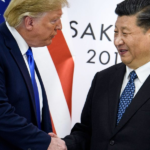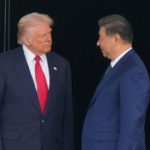Warren Buffett’s Berkshire Hathaway has recently made a significant move by selling more than 60% of its stake in Chinese electric vehicle maker BYD since last summer. This surprising development raises questions about Buffett’s investment philosophy and strategic decisions. Here are five possible explanations for this unexpected divestment:

- Profit-Taking Strategy:
- Despite Buffett’s renowned preference for long-term investments, the substantial reduction in BYD shares suggests a potential profit-taking strategy. The conglomerate purchased 225 million BYD shares in 2008 for $232 million, witnessing a remarkable increase in value since then.
- Portfolio Pruning:
- Berkshire Hathaway might be engaged in a portfolio pruning exercise, reevaluating its holdings to optimize the overall composition. This move could be driven by a desire to streamline the portfolio and focus on core investments.
- Geopolitical Considerations:
- Given the escalating tensions between the U.S. and China, Berkshire Hathaway may be strategically reducing its exposure to Chinese assets. This geopolitical risk management approach aligns with Buffett’s past decision to sell Taiwan Semiconductor amid similar concerns.
- Search for Better Opportunities:
- Buffett’s statement in April about the possibility of finding better investment opportunities could be a key factor. The rapid rise in BYD’s stock value and uncertainties in the Chinese market may have prompted Berkshire to explore alternative investments.
- Comfort Zone and Industry Expertise:
- BYD’s nature as a Chinese electric vehicle maker operating in a capital-intensive and competitive industry may have been outside Buffett’s comfort zone. Berkshire traditionally focuses on U.S.-based companies within industries that Buffett and his team deeply understand, such as fast food or insurance.
The sale of BYD shares is atypical for Buffett, who typically holds onto winning investments for the long term. Considering Berkshire’s substantial cash reserves of $157 billion as of September, the move is not driven by an immediate need for liquidity.
Investors and market observers will be closely watching for any further explanations or potential developments in Berkshire Hathaway’s investment strategy. The surprising divestment from BYD prompts speculation about the conglomerate’s outlook on the Chinese market and its broader investment decisions.









